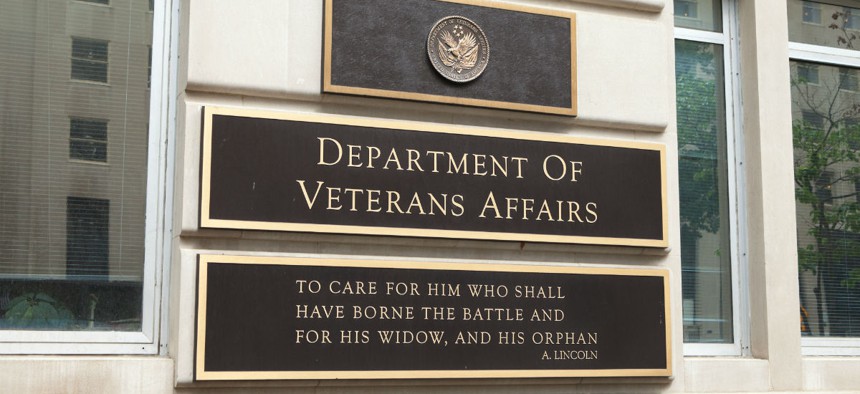VA Reform Heads to Trump, a New Program for Sexual Assault Survivors and More
A weekly round-up of pay and benefits news.
A bipartisan bill that would expedite the firing of employees at the Veteran Affairs Department is poised to become law after the House voted 368-55 Tuesday to send the measure to President Trump’s desk.
As Eric Katz reported, House leaders are touting the Department of Veterans Affairs Accountability and Whistleblower Protection Act as a “significant step forward” for civil service reform. The bill would allow the VA secretary to fire, suspend or demote an employee with just 15 days’ notice, and employees could appeal to the Merit Systems Protection Board albeit through an expedited process.
Although the bill is more friendly to employees than previous VA reform efforts, groups like the American Federation of Government Employees and the Senior Executives Association opposed the measure, arguing it erodes feds’ due process rights.
Meanwhile, the Defense Department on Monday launched an online learning program to help service members who were victims of sexual assault to recover and heal from their ordeals.
The self-guided program, available through computer Web browsers and on mobile devices and called “Building Hope and Resiliency: Addressing the Effects of Sexual Assault,” provides information about coping mechanisms, relaxation exercises, as well as links to other resources and referrals for additional support.
The department’s Sexual Assault Prevention and Response Office partnered with the nonprofit Rape, Abuse and Incest National Network to develop the anonymous program for survivors. The course allows users to take an optional self-assessment to determine the effectiveness of their current coping strategies and whether additional support may be beneficial.
According to the department’s annual report on sexual assault in the military, there were more than 5,000 reports of sexual assault involving service members as victims in fiscal 2016. About 10 percent of those reports—556 service members—involved assaults that occurred prior to entering the military.
“Knowing there is a significant link between childhood sexual victimization and adulthood sexual re-victimization and health problems, we wanted to help service members who experienced sexual assault prior to joining the military learn about topics like healthy relationships and coping strategies, and identify whether they would benefit from additional support and resources,” said Bette Inch, a senior victim assistance adviser at SAPRO, in a statement.
The course complements existing support structures to military sexual assault survivors, including confidential around-the-clock support in the form of the department’s Safe Helpline, available online or by calling 877-995-5247.
Elsewhere in veterans news, a Senate panel is slated to examine a series of bills concerning programs for ex-service members Thursday.
The series includes measures that would expand vets and their families’ access to higher education assistance, as well as a bipartisan bill that would require large agencies to establish an office or full-time position devoted to promoting job opportunities for veterans.
NEXT STORY: With Cuts on the Table, Is It Time to Go?








